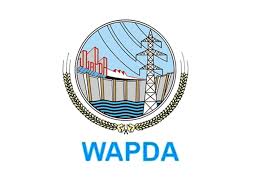ISLAMABAD: Minister for Petroleum, Ali Pervaiz Malik, has opposed a proposal to walk away from Pakistan’s first LNG contract with Qatar, stressing that he values Islamabad’s long-standing relationship with Doha and that “a price-opener should not be construed as a volume-opener,” sources in Power Planning and Monitoring Company (PPMC) told Newzshewz.
A raw form proposal had been floated weeks before the Minister’s scheduled visit to Qatar to renegotiate LNG contracts, particularly concerning annual delivery commitments, as RLNG consumption in the power sector remains far below contracted volumes. Both the Petroleum and Power Ministers have shared divergent views on the matter.
During a recent meeting of the Committee on Structural Reforms in the Petroleum Sector, chaired by the Petroleum Minister, PPMC’s Naveed Qaiser presented a comparative analysis of Energy Purchase Price (EPP) between imported coal and RLNG. According to data, the power sector currently consumes around 340 mmcfd of RLNG, which is projected to decline to 175 mmcfd by 2031.
The analysis suggested potential additional consumption of 174 mmcfd at Rs.1,500/mmbtu and 127 mmcfd at Rs.2,000/mmbtu, while only 95 mmcfd could be absorbed at Rs.2,209/mmbtu. It was further highlighted that providing gas at Rs.1,500/mmbtu to the power sector would result in an impact of $305 million, with reduced costs under higher price scenarios.
If Qatar cargoes were managed under Non-Performance Damages (NPD), the financial implication would be around $24 million at current prices. However, the Petroleum Minister observed that NPD-related losses are variable and “cannot be locked.”
A Task Force representative noted that lowering prices could enhance LNG consumption, improve electricity availability in Punjab, and reduce transmission losses from the South. He pointed out that even if Pakistan withdraws from the first Qatar contract, it would still be obligated under contract-2 to lift at least four cargoes annually for the next five years, amounting to 360 mmcfd.
The Power Division responded that revising the marginal cost of RLNG—either by lowering its price to bring power plants into the merit order or selling cargoes under NPD—remained an option. Current market analysis indicates that with high spot prices, diversion losses may be smaller than anticipated.
The meeting had detailed discussions on identifying an optimal LNG price point to minimize losses to the national exchequer, safeguard foreign exchange reserves, and strike a balance between affordability and revenue neutrality.
Minister Malik reiterated that Pakistan must uphold its partnership with Qatar, emphasizing: “Qatar has always supported Pakistan, and our negotiations on price must not be mistaken as a signal to reduce committed volumes.”
Ends















